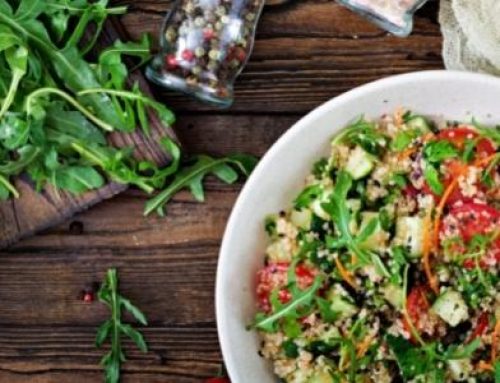
If I had a dollar every time I heard “I just get bored easily! I’m so over [insert X meal]” I’d be a rich man! And if you had a dollar for every time someone started an article with “If I had a dollar…” you could probably hire a personal chef and wouldn’t need to read this article. But I’m fairly sure you don’t, so please read on.
Seriously though, there are a lot of barriers to why someone may not be able to sustain a healthy eating pattern over the long term. One which frequently rears its head is meal monotony. Many clients are after meal ideas and frequently voice boredom as a major hurdle in the kitchen.
It seems like the answer would be straightforward right? Change meals, eat something different or try something new. And while I’m no Sherlock Holmes, I suspect that those answers may have already been thought of and possibly come up short.
It may be because those initial answers just address the surface issues. What we need to consider is why do people get stuck or bored with their dietary choices?
Perhaps it’s partly due to:
1. A lack of confidence in the kitchen.
2. Being ill-prepared.
3. Believing that cooking delicious meals is too complicated or hard.
4. Are confused at what to eat to meet their needs and goals.
5. Are attempting to follow a rigid plan.
The above is far from a comprehensive list, but in my experience and from talking with the rest of The Hub Team, they are some of the more common barriers to breaking away from meal monotony.
So what can we do to break meal boredom?
1. Get in the kitchen!
I’m going to give you a piece of advice that carries across all domains. Action begets action. Stalking Pinterest, watching 2-minute food videos on Facebook and collecting cooking magazines is great. If you act upon it.
The only way to build confidence in the Kitchen is to get hands on! Yes, you’ll likely create some inedible garbage, but you’ll learn from each mistake. When I was 14, I melted a plastic bowl in the microwave trying to melt chocolate. Lesson learnt.
2. Plan your weekly meals.
Fear and stress in the kitchen can kill motivation and make taking action much harder. One of the best ways to reduce a stressful situation is to gain control. Scheduling some time to create your weekly meal plan, create a shopping list and purchase the goods will go a long way in reducing stress. My advice would be to not switch everything at once. Start a recipe roster that includes two categories; meals that you love and are confident in cooking (staples) and meals that you want to try (trials). When constructing your weekly plan, think about what nights you’re busy or have limited time. These probably aren’t the nights to attempt a fancy new meal, rather sticking to basics or quick go-to meals. On the nights when you have a bit more time, experiment from your ‘TO TRY’ list. If it goes well, add it to your recipe roster.
3. Keep it simple.
You don’t need to be a Michelin-starred chef to cook delicious meals. In fact, keeping it simple is usually an excellent way to go. As I mentioned above, don’t try to do too much all at once. Even if it’s just substituting your usual protein sources such as chicken and beef for something different like pork or prawns, or introducing a new wholegrain (I’m a big pearl barley fan) instead of the usual brown rice. It could just be changing sauces or herbs and spices. These small changes provide new stimuli to the brain and can re-ignite food enjoyment.
4. Avoid absolutes and extremes.
These days there’s more information than we could ever hope to read on what we should and shouldn’t be eating. Often this information is contrasting and leads to more confusion than before. The key is to stop looking for that “one” food. Understand that no foods are either good or bad without context and anyone who makes loud, absolute statements about particular foods should be listened to with ample scepticism. There’s a reason we at The Hub keep it simple. Why we don’t advise clients to cut out foods other than for allergies and intolerances and why we’re proponents of a nutrient dense, whole food based diet. We don’t have a secret agenda to keep people overweight and ill. It’s because those are general conclusions we’ve come to individually and as a team over years of study and experience. Don’t fear foods!
5. Embrace mistakes!
Take it from someone who HATES not being good at something instantly, mistakes and failures are the best lessons in life. Realistically, you’re not going to be a #masterchef when attempting to develop your cooking skills and if you are, then feel free to drop by The Hub for lunch one day. Whether your chicken is overcooked, your pancakes taste like bicarb, or you’re repeatedly starting new diets. The lessons are there; you just have to be receptive. Habits and skills take time and require effort, remember how long it took you to learn particular skills in primary school? Sometimes months or longer and you were practising each day. Funnel your inner child and become excited about learning new skills.
6. See it as an investment.
One of the biggest reasons people struggle with any goal is because immediate gratification drives them. They want results two weeks ago. This is why there are so many eight week challenges around these days and why so many individuals turn to fad diets despite ample research illustrating that they’re ineffective long term. These are short term solutions that rarely address the underlying issues. Rather than following rigid prescriptions, invest in the long-term process. Critically evaluate what barriers you face that are stopping you from reaching your goals. Determine what skills/behaviours/habits you need to learn and develop in order to overcome them. These are what will lead to long-term success.
If you’d like further help with your nutrition advice please click below:





